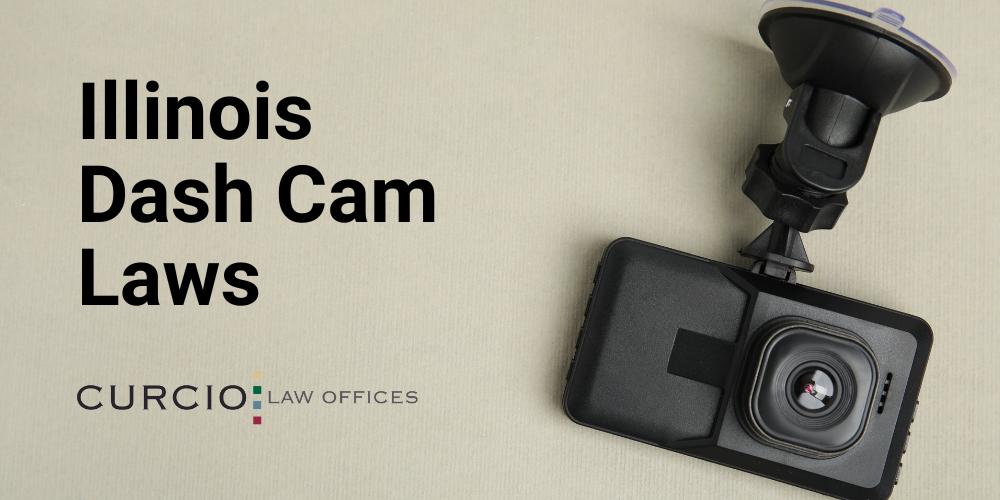Drivers all over the world use dashboard cameras, or dash cams, to record their activities on the road as well as the actions of other drivers. While dash cams are legal in all 50 states, each state has its own rules and regulations regarding recording others. In addition, some states have specific dash cam laws that restrict how drivers can use their dash cams and where they can mount dash cams in their car, so as not to obstruct the driver’s view. In this post, we’ll take you through all the Illinois dash cam laws and regulations you need to know.
If you have been involved in a car accident, the Chicago personal injury lawyers at Curcio & Casciato can help you recover compensation for your injuries. Call us at (312) 321-1111 to schedule a free consultation with one of our legal professionals regarding your case.
What is a Dash Cam?
A dashboard camera, also known as a dash camera or dash cam, is a small digital camera that is placed within your vehicle. Most commonly, dash cameras are used to capture footage of the road and cars in front of your vehicle, but they can be utilized in a variety of ways and can be placed in different locations within your vehicle, like your car’s rear window or side windows.
Different cameras capture different things. For example, some dash cams record audio and video, whereas some only record video. Additionally, different drivers use dash cams for different purposes. Some drivers install dash cams that only record out of the front windshield in order to record things like car accidents. Other drivers, like rideshare drivers, may install dash cams that record the inside of their vehicle in order to record passenger misconduct.
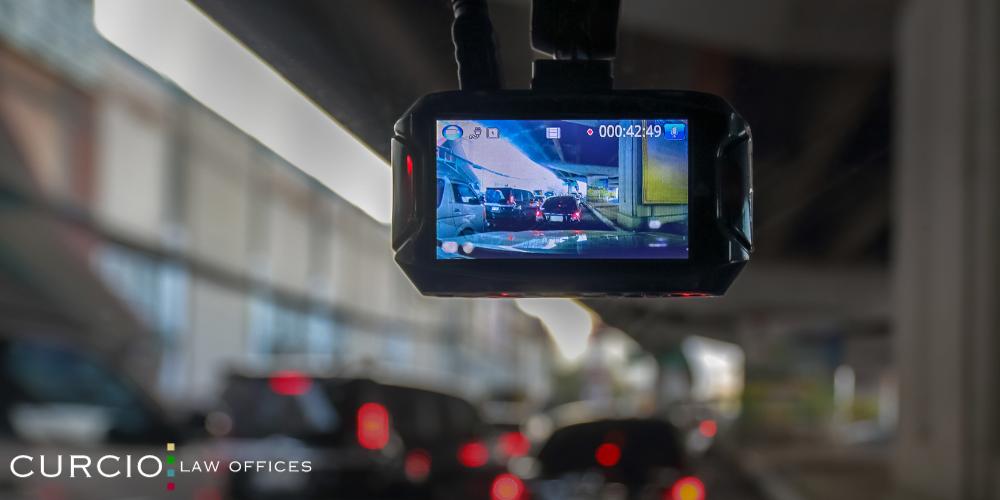
Are Dash Cams Legal in Illinois?
Yes, dash cams are legal in Illinois. In fact, dash cams are legal in all 50 states, but the laws and regulations surrounding dash cams vary by state. While there are no specific dash cam laws in Illinois, there are still a few rules you have to follow in order to legally record with one. If you do not follow these rules and regulations, your dash cam recordings may not be admissible in a court case.
In Illinois, you are allowed to install cameras inside your car as long as they are placed on the driver’s side of the dashboard and as long as they don’t obscure more than five square inches of windshield. This ensures that the dash cam does not unreasonably obstruct the driver’s view.
If you install a dash cam that only records video, then you’re good to go. If you install a dash cam that records audio as well as video, then you must receive consent from everyone in the vehicle in order to legally record audio within your car. Illinois is what is called a “two-party consent” state, meaning that in order to record audio of a private conversation, all parties involved in the conversation must consent to being recorded. If your dash cam has both video and audio recording capabilities, you should obtain consent from all of your passengers before recording any audio within your car.
In Illinois, you can legally record the police while they are on duty and in public. This means that if you are pulled over in Illinois, you do not have to shut off your dash cam when recording a public interaction with a police officer.
This law is fairly recent, so some online resources still list that it is illegal to record on-duty police officers in the state of Illinois. In the past, if you were caught recording police activity in Illinois, you could have been charged with a felony and could have faced up to 15 years in prison, but this is no longer the case.
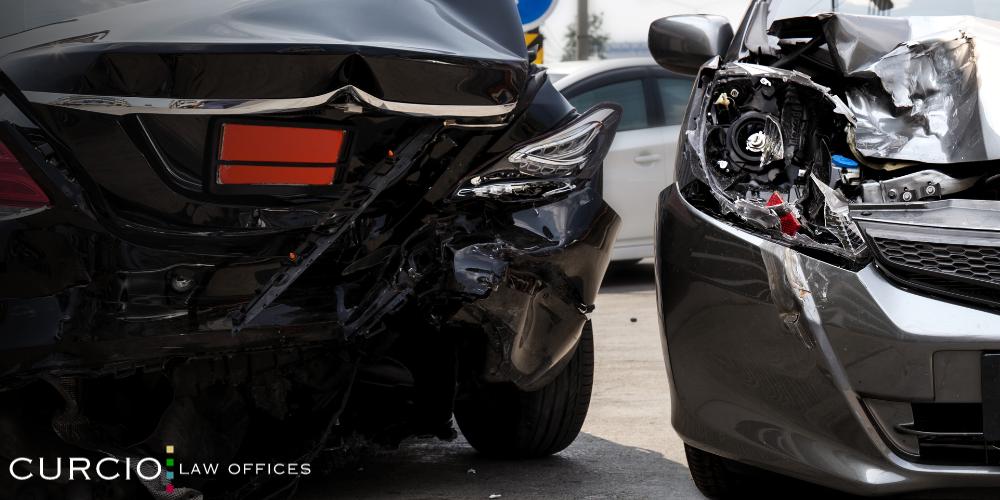
Where Should You Install a Dash Cam in Your Car?
If you are primarily driving in Illinois, you should install dash cams on the driver’s side of your car’s dashboard. Make sure that the dash cam is no larger than five square inches so it does not obstruct the driver’s view.
Dash Cam Laws in States Surrounding Illinois
When comparing dash cam laws by state, it’s important to remember that, even though dash cams are legal in all U.S. states, the regulations surrounding them are different. So if you regularly commute between Illinois and another nearby state, you may want to know what rules that state has on dash cam usage.
Below, we’ll take a look at the dash cam laws in the states that border Illinois: Indiana, Iowa, Kentucky, Missouri, and Wisconsin.
Indiana Dash Cam Laws
Indiana dash cams must be placed in the lower corner of the passenger-side windshield. Additionally, they cannot obscure more than four square inches of the windshield. Indiana is a one-party consent state, so you do not have to obtain consent from your passengers to record video or audio with your dash cam.
Iowa Dash Cam Laws
Iowa has no specific laws regarding dash cams, but it does have laws about obstructing car windows. It is illegal to drive a car that does not have clear visibility through the car’s windshield, side wings, or side or rear windows. Because of this, you may want to place your dash cam behind your car’s rear view mirror, where it can’t obstruct the driver’s view.
Iowa is also a one-party state, so you don’t have to obtain consent to record audio and video with your dash cam. As long as you consent to being recorded, you’re in the clear.
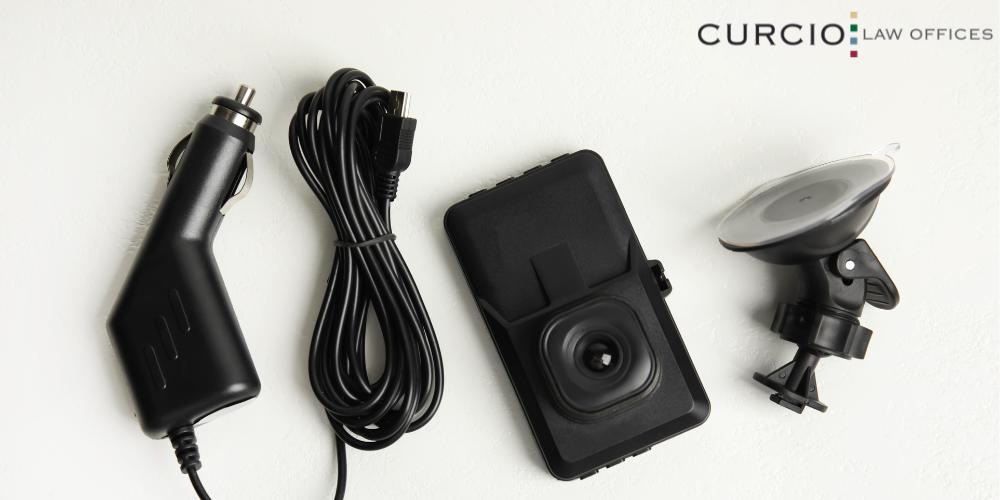
Kentucky Dash Cam Laws
Kentucky also has no laws restricting mounted dashboard cameras, but they cannot obstruct the driver’s view. While there aren’t any dash cam laws in Kentucky, to be safe, avoid installing something like a side dash cam that sits in the middle of the window, or suction dash cams that take up an unreasonable amount of space.
Like Indiana and Iowa, Kansas is a one-party state, so drivers do not require consent to record audio or video within their cars.
Missouri Dash Cam Laws
There are no laws in Missouri that restrict where drivers can have their dash cams installed inside their cars. Even though you can mount dash cams wherever you want, you should still avoid any dash cam placement that greatly obstructs your view. Missouri is a one-party consent state, so you are free to record audio and video of the inside of your car.
Wisconsin Dash Cam Laws
In Wisconsin, dash cams are legal to use as long as they are placed behind rear view mirrors. If you are driving through Wisconsin, attach your dash cam to the front windshield of your vehicle behind your rearview mirror so as not to obstruct your view. Like the other states surrounding Illinois, Wisconsin is a one-party consent state for video and audio recordings, so you don’t need consent to record with your dash cam.
Can You Use Dash Cam Footage in a Personal Injury Lawsuit?
Yes, if you are in a car accident, and you have a dash cam installed in your car at the time of the accident, you can use any recorded footage in a personal injury lawsuit. In a personal injury case, the victim must prove that someone else acted negligently and caused their injuries. In the case of car accidents, this means that accident victims have to prove that someone else was at fault for the accident, and dash cams can help Chicago car accident lawyers prove that another party was responsible for the accident.
If you or a loved one was injured in a car accident, call the Chicago motor vehicle accident lawyers at Curcio & Casciato. With over 60 years of experience serving the residents of Chicago, you can trust us to provide you with expert legal counsel in regard to your case. Call us at (312) 321-1111 to schedule your free consultation today.
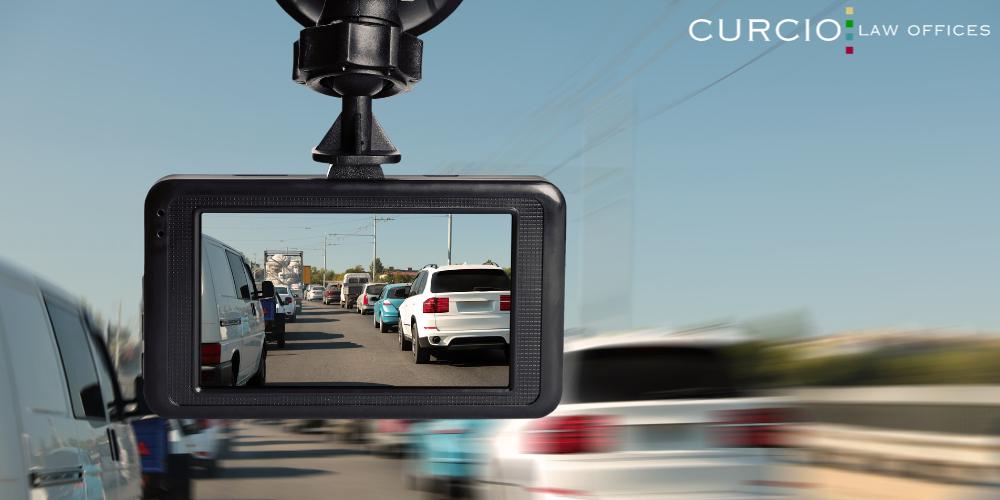
How Dash Cam Footage Could Be Used Against You in a Civil Lawsuit
While dash cams can be incredibly helpful in some civil cases, they can also be incredibly detrimental in others. In Illinois, dash cam footage can prove that someone else was mostly to blame for a car accident, but it can also prove that you were partially to blame for the accident. This is called modified comparative fault, and it can prevent you from receiving maximum compensation in your personal injury case.
Illinois Modified Comparative Fault Rules
You may be wondering – is Illinois a no fault state? No, Illinois is an at-fault state, and this distinction (along with the state’s modified comparative fault) rule is important when it comes to establishing fault in an accident.
Modified comparative fault, also known as comparative negligence, states that an injured person can sue for damages in a personal injury lawsuit if they were less than 50% at fault for the accident. This means that if you were 30% at fault for an accident, you can sue the person who was 70% responsible for the accident, and you would be able to recover 70% of the damages for the accident.
Let’s look at an example: if you were t-boned by someone running a red light, but you happened to be texting while driving at the time of the accident, you may be found to be at least partially at fault for the accident. If you took that case to court, and the court decided that you were only 20% at-fault for the accident, a Chicago texting and driving accident lawyer can ensure that you recover 80% of the compensation the other driver owed you.
The amount of monetary damages that a victim is owed in an accident is decided by the court, as is the percentage of fault. Things like dash cams can help confirm what exactly you were doing at the time of the accident and can help either absolve you of fault or prove that you were partially to blame for the crash.
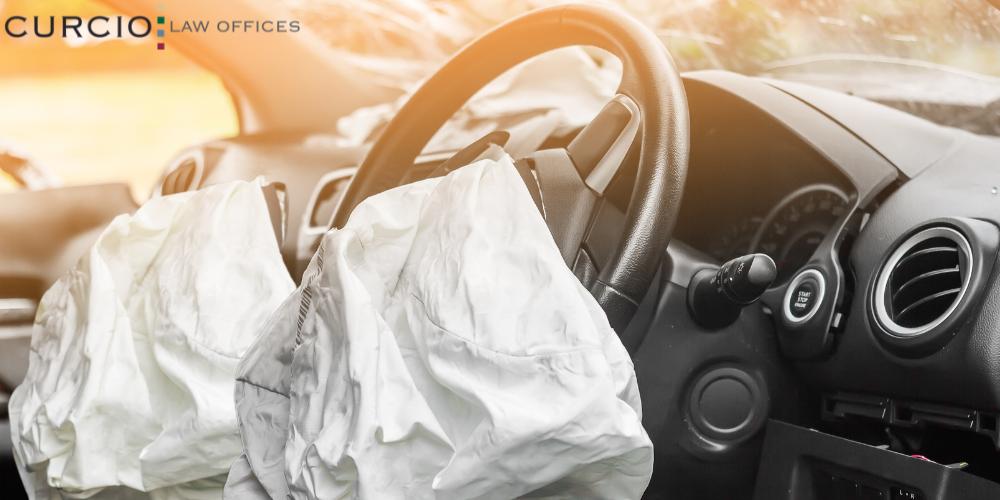
Do I Have to Show My Dash Cam Footage to the Police?
It depends. You can choose to disclose your dash cam footage in an insurance claim or personal injury lawsuit, but dash cam laws in Illinois do not require you to turn over your dash cam footage to the police. Before you give anyone your dash cam recordings, be sure to speak to an experienced car accident attorney who can discuss your legal options with you and help you make the best decision for your situation.
If you are involved in a criminal investigation, police may obtain a warrant for the dash cam footage, and you would have to hand it over, regardless of whether you want to or not. In certain extreme cases, police may be able to seize your dash camera at the accident scene.
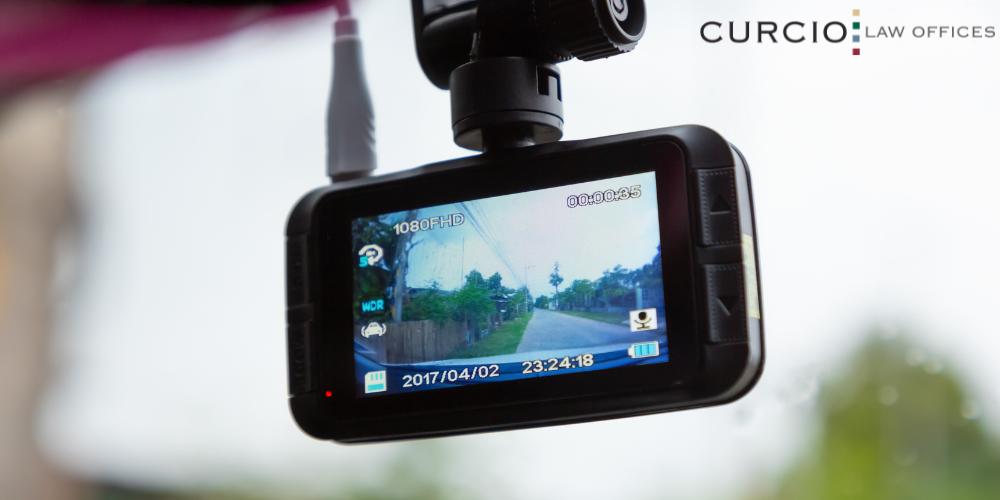
Call Chicago Car Accident Lawyers at Curcio & Casciato Today
Car accidents can be incredibly devastating in physical, emotional, and financial ways. Having something like a dash cam installed in your car can help ensure that any car accident you are involved in is recorded so that you can receive compensation for your injuries.
If you or a family member was injured in a car accident, you deserve compensation. The Chicago personal injury lawyers at Curcio & Casciato can help you file a personal injury claim or even file a lawsuit against the person responsible for the accident. Call us at 312-321-1111 or contact us online to schedule a free initial case evaluation with one of our experts.
